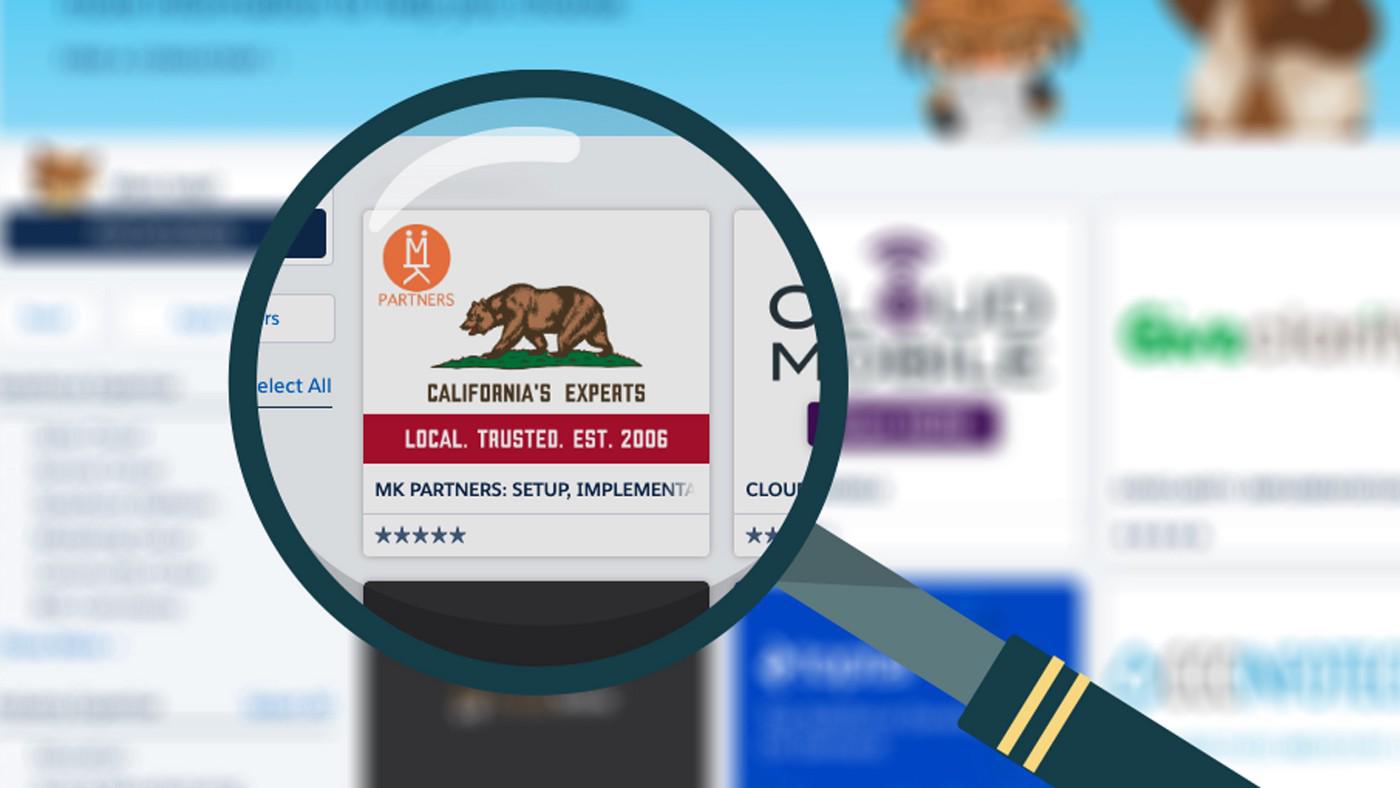Post
Finding the Right Salesforce Consultant
Posted on April 30, 2020 (Last modified on January 16, 2026) • 5 min read • 979 wordsWhether you’re a brand new client getting ready for rollout or a platform veteran with a vision for improving your current system — finding the right Salesforce partner is the (not so) secret key to project success.

But with over a thousand official Salesforce partners (and hundreds more “unofficial” ones), how do you narrow down the field to ensure your project has the best support available? In today’s post we’ll be taking a look at the key questions to ask, both of yourself and prospective partners, to find the right fit for you and your org.
Let’s dive in!
What Do You Need?
First up, and most importantly, begin by establishing your goals, needs, and expectations. Your vision and requirements will be the benchmark against which you’ll judge prospective partners, so the more clear and well-defined those objectives are, the easier it will be to measure a firm’s potential fit for your project.
And don’t limit yourself to your personal preferences, it’s worth getting input and buy-in from all the relevant parties before beginning your search. Whether that’s the executive team, management, the specific user-group who will be the most hands-on with the new feature, system, etc… having a meeting to collate your collective vision and roadmap your project expectations will help you engage potential partners and “shop for help” more effectively.
When you begin your search you try to clearly define your:
-
Goals: For the finished product, the process itself, and the level of involvement from your team(s).
-
Needs: Create parallel lists of “Need to Haves” and “Nice to Haves” to make planning, budgeting, and delivery scheduling simple and ensure that you’ll have all the pieces you need. up and running on day one.
-
Expectations: Do you want on-site support or training? How frequently do you want to hold status meetings or receive project updates? How does your organization like to handle user-acceptance testing and revision? Do you prefer end-user training, or a “train the trainers” approach? Knowing what you expect in terms of support and engagement will make it much easier to determine which partners’ processes will complement the way you want to work. Of course, great partners will help you establish these at the start of a project too, but going into your search prepared can make it much easier to ensure success.
Clients, Projects, and Use Cases
Now that you’re aligned on your goals, objectives, and expectations — what’s the best way to evaluate potential partners against that rubric? Take a look at their prior clients, projects, and customer stories!
While no two organizations (or projects) are identical, seeing and hearing how firms have helped clients in the same industry address similar issues gives you invaluable insight into their preparedness to tackle your needs. And don’t just settle for a list of familiar names in your vertical, ask for details about the project, relevant user stories, and references. After all, the people with the best insight into how a partner operates will be the people that have been there before and there’s no substitute for hearing directly from previous clients about how their project was executed.
Referrals can provide third-party perspective on everything — project management, timelines, workflow, responsiveness, and results. So when you start narrowing down potential partners, be sure to ask for customer cases and for references, so you can learn more about how things will play out from someone who’s been there before.
How and When Size Matters
When it comes to finding the right fit for your organization and project, size is isn’t the most important factor, but there are some aspects to consider. Worries about getting “assembly-lined” or treated impersonally by giant megacorps, or a one-person consultancy being pulled in too many directions to serve all of their clients are common — but most relevant will be how the consultancy’s culture and management style fit with your project goals and objectives. Good thing we established those before we began our search!
Ask about team size, on the average project and for your specific use-case. Ask about project management and accountability. Will you be working with one, specific project manager, or will you be working with a series of teams to accomplish various parts of your project? And, of course, consider those same questions for your organization.
Every project is a two-way street in terms of requirements, requests, and communication and the more aligned your internal project management processes are with the partner you choose, the easier it is to link them up come kickoff!
Location Location Location

While modern technology empowers remote workforces like never before, there are still some important aspects to consider when it comes to the location of your selected partner and their staff.
Do you plan on having some work or training done on-site?
Will the people working on your project be in your timezone? This one’s especially important in terms of scheduling, timely communication, and overall project speed.
Will their people be working out of the same office (or at least timezone)? If you think meetings are hard to pin down between two parties and dislike repeating yourself in separate meetings, this one’s critical.
Again, take a look at the objectives and expectations you outlined in the first step, and use those to determine just how “local” and available you expect your partner to be.
Check Those Credentials
Last but not least, you’ll have some sense of qualification from the firm’s client references and project history, but Salesforce makes it simple to check even individual skills and masteries!
With certifications, badges, superbadges, and the entire Trailhead program in place to educate and keep up to date, it’s easy to get a quick view of a team’s competencies by looking at their Trailhead profiles! It’s already common to request resumes (or at least project histories) of the staff that would be assigned to your project, but make sure you request Trailhead profiles as well so that you can get rundown of their certifications, badges, etc… and see where they’re up to date and what makes them Salesforce experts.